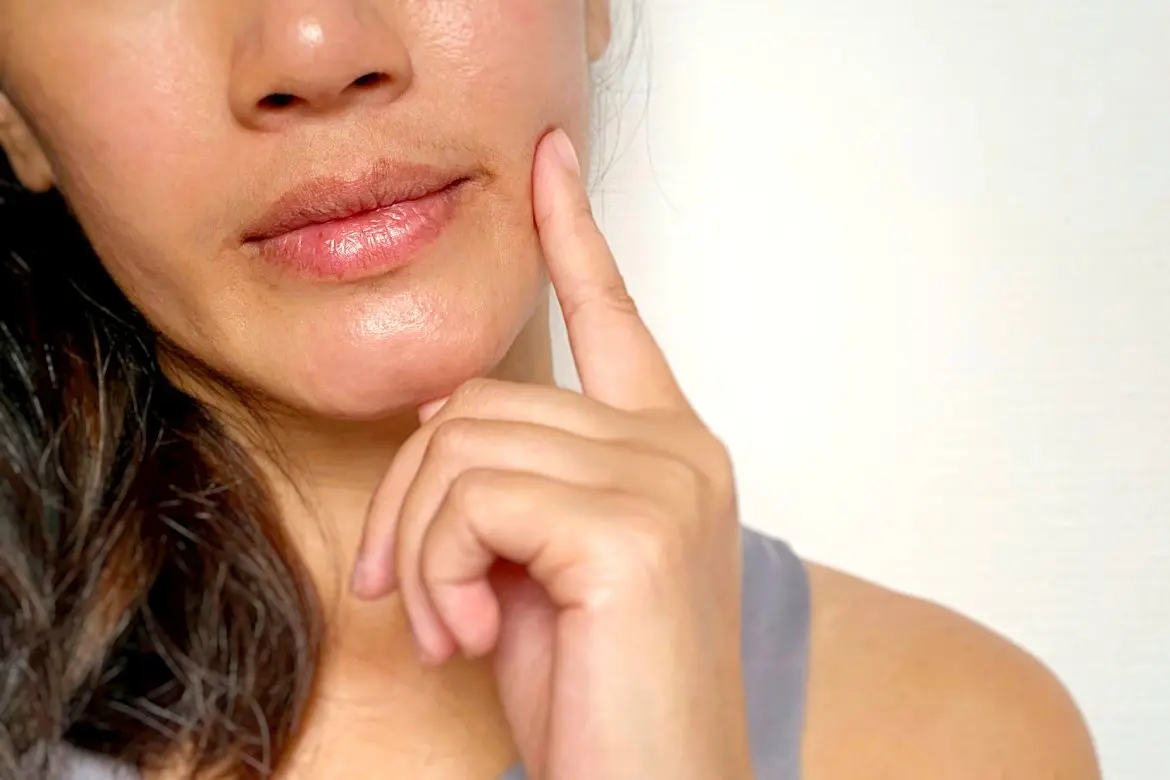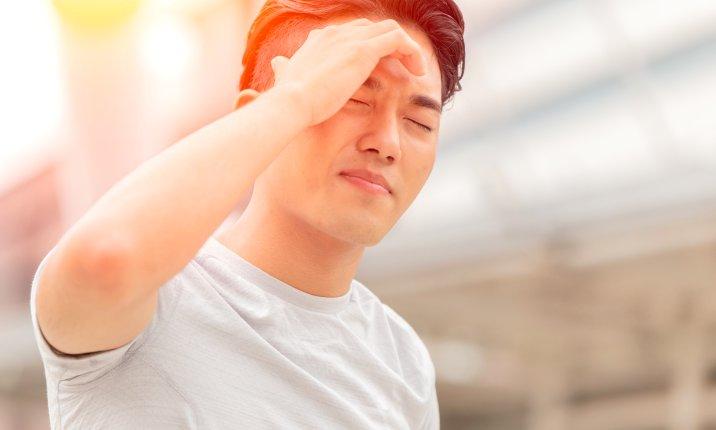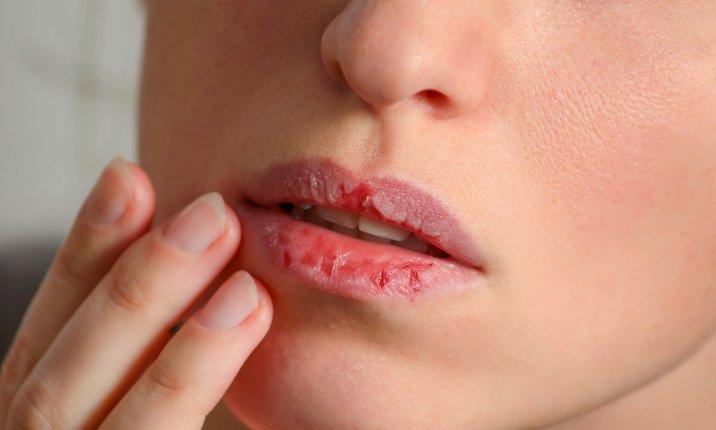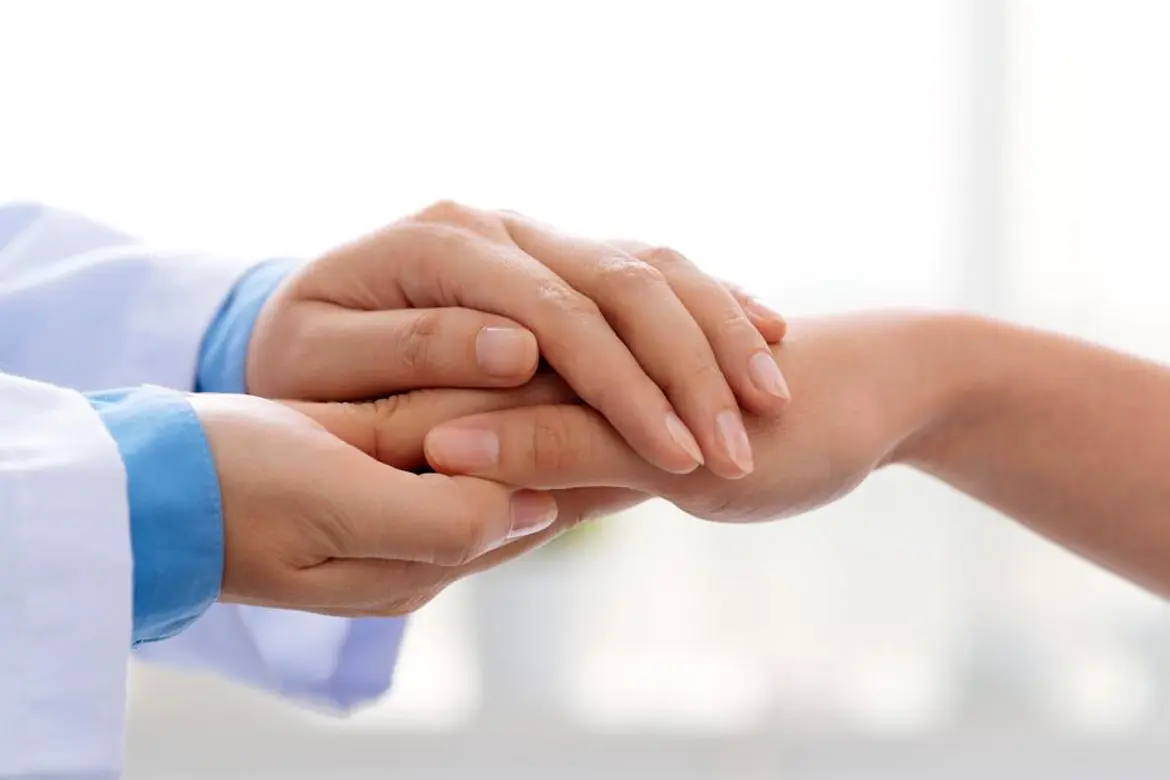If you have dry lips that burn, your discomfort warrants an effective treatment regime that can get your lips back in the pink of health – pronto. To get the right treatment, however, you must first understand why you have dry lips. Understanding the root cause can also tell you what your dry lips are a sign of and shape any follow-up care you might require.
What causes dry lips?
Uncovering the reason you have dry lips is important. It's not just about the discomfort or aesthetics – our lips often can indicate underlying health issues.
Dry lips and digestive problems
Digestive problems might not seem like they have anything to do with your lips, but there's a connection. Our gut health often reflects on our skin, and the lips are no exception. If your body isn't absorbing nutrients properly because of digestive issues, it can sometimes lead to dry, chapped lips.
Dry lips and vitamin deficiency
Your lips can be a window into your overall health. One of the common causes of dry lips is a deficiency in certain vitamins. For instance, a deficiency in Vitamin B, especially B2 (riboflavin), can result in dry lips. If you suspect this might be the reason, consider getting a blood test to check your vitamin levels.
Dry lips with lipstick
Many are unaware that their favourite lipsticks could be drying out their lips. Some lipsticks, especially long-wear and matte formulas, can strip the lips of their natural oils, leading to dryness. Applying a lip balm before your lipstick and switching to moisturising lip colours is always good practice.
Dry lips during pregnancy
Pregnancy can bring about a plethora of changes in a woman's body. Due to hormonal fluctuations, some pregnant mothers experience drier skin and lips. It's essential to stay hydrated and moisturised during this period.
Dry lips on newborns
Newborns are also susceptible to dry lips. While this might be alarming to notice, it's fairly common. Reasons like weather conditions or the adjustment period when a newborn gets accustomed to the environment outside the womb can play a part. Keeping the baby's lips moisturised with a paediatrician-approved balm is usually recommended.
What are the symptoms of dry lips?
Symptoms of dry lips, besides the obvious flakiness and cracks, include:
- Redness
- Swelling
- Occasional bleeding
If you experience severe symptoms, or if they persist, it's always a good idea to consult a doctor.
How do you treat dry lips? (Dry lips remedies)
Treatment for dry lips generally involves addressing the underlying cause and providing symptomatic relief. Treatment is typically two-fold, involving home remedies and medical attention, especially for more severe cases.
Home remedies for dry lips
- Stay hydrated. Drink adequate water daily to prevent dehydration, which can contribute to dry lips. Proper hydration helps maintain moisture levels in your lips as well.
- Use balm for dry lips. A good quality lip balm is one of the most effective remedies for dry lips. Choosing one that's free from harmful chemicals and is enriched with ingredients like shea butter, vitamin E, and natural oils is vital. A good lip balm can provide immediate relief and act as a protective barrier against environmental factors.
- Protect from harsh weather. When outdoors, shield your lips from cold, windy, and dry weather by wearing a scarf or applying a lip balm with a sun protection factor (SPF). This can help prevent moisture loss and protect your lips from further damage.
- Avoid lip licking. Licking your lips can worsen dryness. Saliva evaporates quickly, leaving your lips even drier. Instead, use a lip balm to moisturise your lips whenever they feel dry.
- Use a humidifier. A humidifier can add moisture to the air in drier indoor environments and prevent your lips from drying out.
- Gently exfoliate. If your lips have flaky or peeling skin, gently exfoliate them to remove dead cells. Use a soft toothbrush or a lip scrub to lightly massage your lips in circular motions. Follow up with a moisturising lip balm.
- Avoid irritants. Some lip products, fragrances, and certain ingredients can worsen dry lips. Opt for fragrance-free lip balms and avoid using drying lip cosmetics.
Medical treatments for dry lips
- Topical corticosteroids. Your doctor may prescribe topical corticosteroid creams or ointments to reduce inflammation, redness, and swelling associated with dry lips. These medications can help alleviate symptoms and promote healing.
- Antibiotics or antifungal medications. If a bacterial or fungal infection is the underlying cause of dry lips, your doctor may prescribe topical or oral antibiotics or antifungal medications to target the underlying infection and resolve the inflammation.
- Immune-modulating medications. In certain cases of severe or chronic dry lips, immune-modulating medications such as calcineurin inhibitors may be prescribed. These medications help regulate the immune response and reduce inflammation.
- Allergy management. If dry lips are caused by an allergic reaction to certain substances or allergens, identifying and avoiding the trigger is essential. Sometimes, your doctor may recommend antihistamines or allergy shots to manage the allergic response and prevent cheilitis flare-ups.
- Nutritional supplements. When dry lips are linked to nutritional deficiencies, such as vitamin B or iron deficiencies, your doctor may recommend specific supplements to address the deficiency and support lip health.
- Dental treatment. If dry lips are associated with oral factors, such as ill-fitting dentures or oral hygiene issues, your dentist may address these underlying causes and provide the appropriate treatment.
In sunny Singapore, our lips are constantly exposed to many challenges. Whether it's the blazing sun or the chill of an air-conditioned room, dry lips can be a perennial problem. By understanding the causes and being proactive with remedies, you can ensure that your lips remain in the pink of health. If you want to speak to a doctor about your dry lips, feel free to make an appointment. Cheers to happy, healthy lips!















